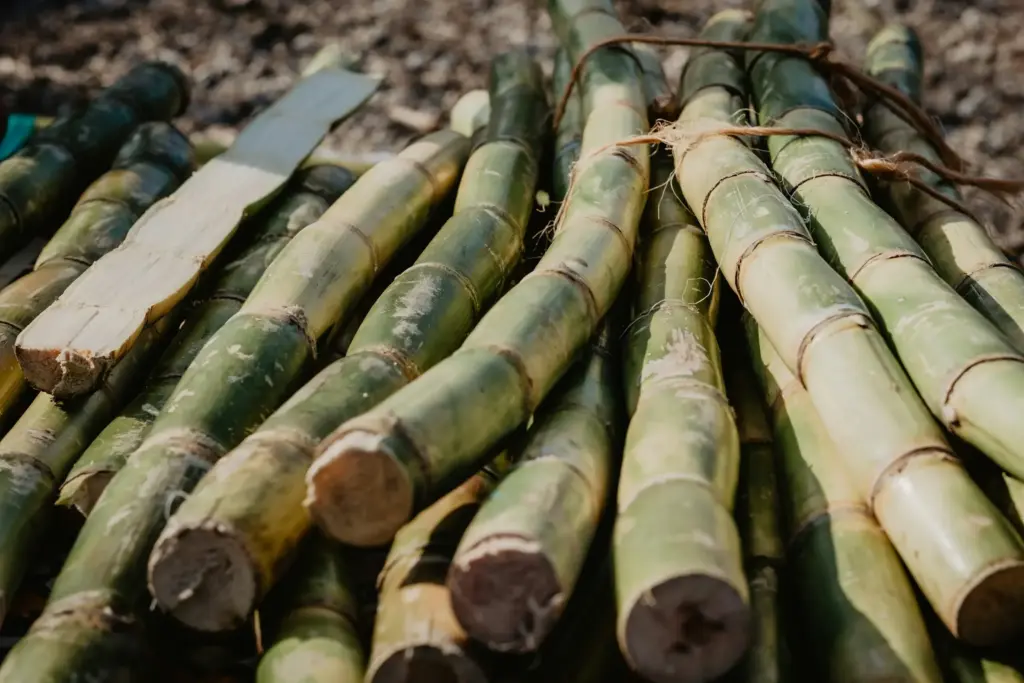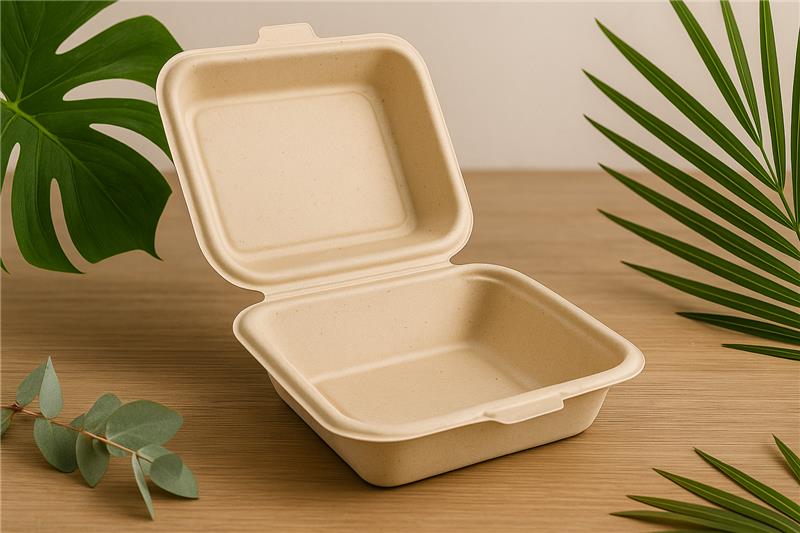The next time you walk past a street-side vendor selling colorful stacks of plastic plates and spoons, take a moment to think about where those plates go after a single meal. More often than not, they end up in the very gutters you step over, in rivers gasping for breath under layers of floating debris, in forests choked by human negligence, and sometimes, even in the belly of a cow foraging through urban trash.
Plastic tableware is a plague. And disposable tableware shops, knowingly or unknowingly, are fueling it every single day.
It’s time to stop.
And it’s time to switch to bagasse tableware – an eco-friendly alternative made from sugarcane pulp that is good for the planet, for your customers, and for your business.
The Brutal Truth: Plastic Tableware is Destroying the Earth
It may feel harmless to sell a pack of plastic spoons or foam bowls. After all, they’re cheap, lightweight, and convenient, right?
But here’s the flip side:
- Plastic tableware takes hundreds of years to decompose.
- Most of it ends up unrecycled, littering rivers, streets, and dumping grounds.
- Animals eat it. Children play with it. Rainwater carries it into drains, clogging systems and spreading disease.
- It’s often made with toxic chemicals, including Styrene and BPA, which leach into food and harm health.
Take a walk in the mountains of Himachal, the ghats of Varanasi, or the beaches of Goa. You’ll find plastic bowls, broken forks, and snack plates in the most pristine places. Our landfills are overflowing. Our rivers are dying. Our oceans are becoming plastic soup.
And the disposable tableware industry has played a huge role in this destruction.
Enter Bagasse: A Real Alternative
Bagasse is the dry fibrous residue left after sugarcane juice is extracted. Traditionally considered agricultural waste, this pulp can now be molded into plates, bowls, trays, containers, and cutlery.
It is:
- 100% biodegradable
- Fully compostable in 60–90 days
- Heat and cold resistant
- Free from plastic and toxic coatings
- Safe for food contact
- Microwavable and freezer-safe
And best of all: it’s made from what we already have in abundance – sugarcane waste.
Bagasse Tableware Export from India: A Global Opportunity
India is one of the largest producers of sugarcane in the world. This gives Indian manufacturers a powerful advantage in creating high volumes of bagasse tableware at competitive costs.
Today, Indian manufacturers are not just supplying local markets – they’re exporting to Europe, the Middle East, Australia, and the US, where demand for compostable and sustainable products is skyrocketing.
If you’re a distributor or tableware shop in India, there’s a clear opportunity to tap into this global trend. Not only can you switch to selling environmentally-friendly products, but you can also expand into international markets.
Why Shopkeepers Must Make the Switch
1. Regulatory Pressure is Coming
Plastic bans are growing across Indian states. From Maharashtra to Tamil Nadu, governments are cracking down on single-use plastics.
Sticking to plastic will soon be a legal liability.
2. Customers Are Waking Up
People are becoming more conscious. They actively look for biodegradable options. Selling plastic makes your store look outdated and irresponsible.
Selling bagasse tells a different story: that you care.
3. Higher Margins, Better Products
Bagasse tableware may cost slightly more than plastic initially, but:
- You earn higher margins per product
- Customers perceive more value in it
- It creates repeat buyers who prefer quality and eco-consciousness
4. Diversification and Business Growth
Offer bagasse items alongside plastic for a while. See the difference in demand. You’ll find that events, caterers, cloud kitchens, and eco-friendly brands prefer bagasse, especially for bulk orders.
You could become a bagasse-focused distributor, not just a shopkeeper.
Real Impact: Imagine This
- A festival served 20,000 meals on bagasse plates
- That’s 20,000 plastic plates saved from landfill
- In 3 months, those plates composted into natural soil
Now multiply that by hundreds of such events, weddings, and daily food outlets.
The impact is measurable. The change is visible.
What Other Brands Aren’t Telling You
Most plastic tableware brands focus on price. They don’t care what happens after the product is sold.
But as a seller, you should.
Ask your supplier:
- Where does this plastic end up?
- Can it decompose?
- What are my customers feeding their guests with?
When you sell bagasse tableware, you’re selling:
- A cleaner street
- A safer ecosystem
- A conscious choice
It’s Not Too Late
You don’t have to save the world overnight. But you can start today. Even a 30% switch from plastic to bagasse in your shop can make a meaningful difference.
Start by stocking the basics:
- 10-inch Round Bagasse Plates
- 4-Compartment Meal Trays
- Clamshell Food Boxes
- Compostable Spoons & Forks
Educate your customers. Put up a sign: “Eco-Friendly Bagasse Tableware Now Available.”
Watch what happens.
People are ready. They just need the option.
Conclusion
Plastic is not just outdated—it’s dangerous. And the world is moving on.
Bagasse tableware export from India is proof that the world believes in our capacity to lead the eco revolution. It’s time we, as retailers and suppliers, believe in it too.
Don’t wait for another government order or viral video of a turtle choking on plastic.
Be the reason someone made a better choice.
Switch to bagasse. Because the earth is watching.


